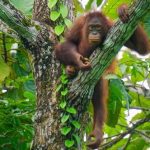 Animals
Animals  Animals
Animals  Weird Stuff
Weird Stuff 10 Weird Things People Used to Do at New Year’s
 Our World
Our World 10 Archaeological Discoveries of 2025 That Refined History
 Weird Stuff
Weird Stuff 10 Fascinating Facts You Might Not Know About Snow
 Miscellaneous
Miscellaneous Top 10 Things Crypto Was Supposed to Change & What Actually Did
 History
History 10 Huge Historical Events That Happened on Christmas Eve
 Music
Music 10 Surprising Origin Stories of Your Favorite Holiday Songs
 History
History 10 Less Than Jolly Events That Occurred on December 25
 Weird Stuff
Weird Stuff 10 Funny Ways That Researchers Overthink Christmas
 Politics
Politics 10 Political Scandals That Sent Crowds Into the Streets
 Animals
Animals 10 Species That Refused to Go Extinct
 Weird Stuff
Weird Stuff 10 Weird Things People Used to Do at New Year’s
 Our World
Our World 10 Archaeological Discoveries of 2025 That Refined History
Who's Behind Listverse?

Jamie Frater
Head Editor
Jamie founded Listverse due to an insatiable desire to share fascinating, obscure, and bizarre facts. He has been a guest speaker on numerous national radio and television stations and is a five time published author.
More About Us Weird Stuff
Weird Stuff 10 Fascinating Facts You Might Not Know About Snow
 Miscellaneous
Miscellaneous Top 10 Things Crypto Was Supposed to Change & What Actually Did
 History
History 10 Huge Historical Events That Happened on Christmas Eve
 Music
Music 10 Surprising Origin Stories of Your Favorite Holiday Songs
 History
History 10 Less Than Jolly Events That Occurred on December 25
 Weird Stuff
Weird Stuff 10 Funny Ways That Researchers Overthink Christmas
 Politics
Politics 10 Political Scandals That Sent Crowds Into the Streets
10 Dangerous Local Foods
Not all food is made equally. Pufferfish is famous for causing death if it is not prepared with the correct amount of poison, and nearly any food can cause sickness if eaten moldy. Food that is eaten too quickly or not cut properly can cause choking. However, some foods are actually designed to be dangerous. Even when prepared perfectly, they can cause injury or take a serious toll on one’s health. The purposefully dangerous foods in this category require caution and sometimes protective equipment before they can be eaten, and a few on this list are even illegal.
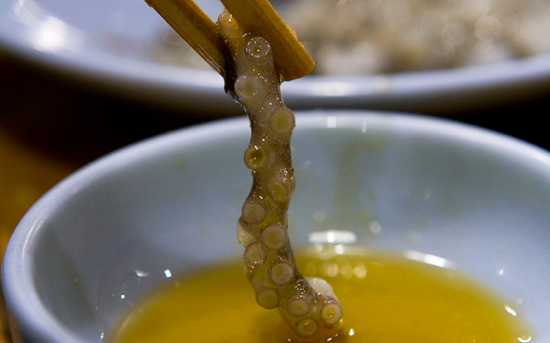
Octopuses are fascinating creatures. They are one of the most intelligent animals on the planet, and have a completely different brain and nervous system to us. Their legs are even capable of directed and independent movement even if chopped off. In South Korea, therefore, you would be wise to take caution when eating saknakji, a live octopus dish. A small octopus is dismembered, drizzled with soy sauce or sesame oil, and then eaten. The octopus typically does not have time to die before it is eaten, and each of the legs is still quite capable of movement. They have been known to try to choke diners. It is not unusual for the suckers on the legs to get caught in one’s throat, and on average there are six deaths a year in South Korea due to asphyxiation by octopus tentacles from saknakji. There have even been several cases of tentacles climbing internally from the mouth up into the nasal cavity. The danger and liveliness of this dish is said to improve its taste.
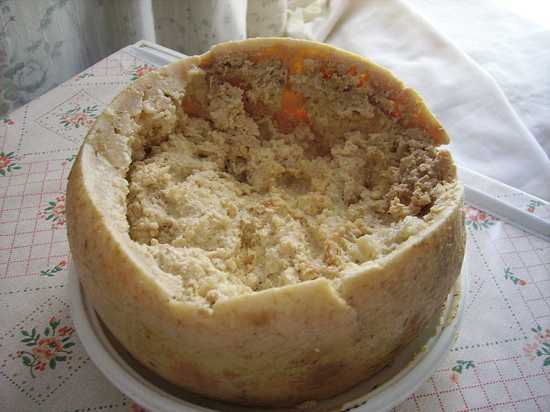
On the island of Sardinia, in Italy, there is a type of local cheese that has been outlawed for reasons of hygiene. Nevertheless, it persists in the culture due to its purportedly wonderful taste. Casu marzu is cheese made from sheep milk. While it is being made, it is purposefully injected with special fly larvae. The maggots feast on the cheese, and their digestive juices cause the cheese to ferment much more than other cheeses, until it begins to decompose. When it is almost liquefied, the cheese is ready to be eaten. The maggots themselves are still in the cheese at this point, usually numbering in the thousands, and are capable of springing themselves 15cm in the air when disturbed. As a result, one can expect the maggots to fling themselves at one’s face while eating the cheese. Protective eyewear is usually worn so that the maggots do not cause permanent injury.
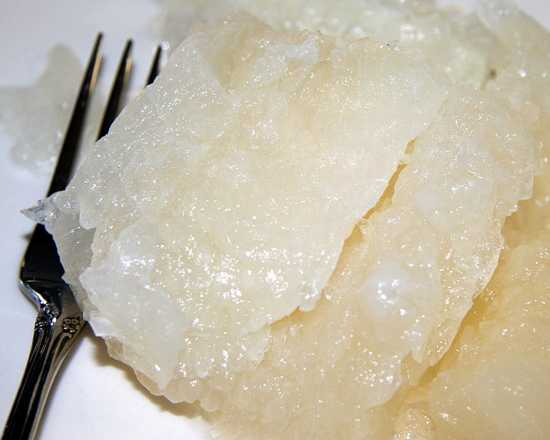
In Scandinavia one can enjoy lutefisk, which is unlike almost any other seafood dish. The fish is saturated in a highly alkaline solution of either sodium hydroxide or potassium hydroxide. After being soaked like this for days, the alkaline solution breaks down the protein in the fish and causes it to bloat into a large, jelly-like mass. If left to soak too long, the fats of the fish can even begin to turn into soap. It then needs to be soaked in plain water for about another week so that it is safe to be eaten, as it can cause chemical burns if not treated. The final product, lutefisk, has a pH of up to 12, making it 100,000 times more alkaline than water and highly caustic. Lutefisk is so alkaline that it cannot be eaten with certain types of cutlery. Silverware will corrode, and any plates or cooking pans with residue from lutefisk left on them can become eroded and ruined overnight. Lutefisk can cause severe pain if eaten by anyone with stomach ulcers or similar gastrointestinal problems.

In the majority of countries on earth, adulthood is gained simply by living to a certain age. This has not always been the case in a great deal of cultures, and many rites of adulthood used to involve bizarre and dangerous practices. In the Americas, one Indian tribe would use the fruit of angel’s trumpet plants to determine if a boy was ready to become a man. The fruit contains a poison, datura, which causes strong delirium, fever, rapid heart rate, violent behavior, permanent memory loss, and other physical and mental discomforts. It has caused thousands of inadvertent deaths when accidentally eaten by children or when taken in an incorrect dose by adults. It is said to cause the most unpleasant intoxication of all known substances. A boy of the tribe in question would consume a very carefully calculated amount of datura before being caged for several weeks so that his violent outbursts would not harm others. Any boy who survived the ordeal was declared a man. Memory loss was a key aspect of this, as the amnesia caused by datura was supposed to make the person forget what it was to be a child, making them suitable for adulthood. Unfortunately, the mental affects of the drug were often permanent, causing the boy to lose knowledge of how to eat, speak, or function as a human at all. Many adolescents were reduced to mentally disabled shells of whom they once were.
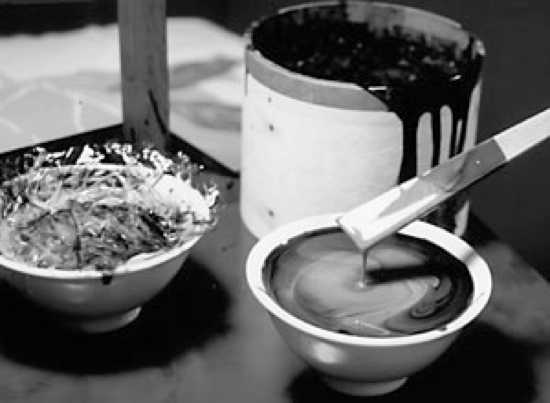
In Japan, people used to practice an extreme form of Buddhism called Sokushinbutsu. One of its stranger focuses was to achieve enlightenment by mummifying yourself over several years while still alive. A key part of this was a tea made from the urushi tree, Toxicodendron vernicifluum. This tree contains deadly amounts of a concentrated poison called urushiol, also found in much smaller quantities in poison ivy. The tea would be taken in order to produce an extreme and violent reaction. The body would lose all fluids via numerous orifices almost immediately, and the remaining flesh would be highly toxic. This was perfect for mummification, as it ensured that there was almost no water left in the body for it to decompose, and the remaining tissues would become too poisonous from the urushi tea for even maggots to infest. When prepared properly, the tea itself is not quite deadly, but it was used before death to ensure the body would mummify properly and not rot or decay. Today it is illegal in Japan to drink urushi tea.

Contraceptives have been used by people for tens of thousands of years, and a few animals have been using their own forms of birth control for even longer. Spider monkeys eat specific plants which alter their hormone levels, giving them control over their own fertility. Alpine marmot mothers will wrestle with their newly-pregnant daughters to force an abortion if winter is approaching, since a pregnancy will not only fail in such conditions, but the pregnant marmot usually dies also. Although most modern human contraceptives are less extreme, there are those of the past which were nothing less than poison. Antimony is a toxic metalloid which causes inflammation and disruption of the heart, seizures, massive organ failure, and death. However, in small enough doses, it only causes headaches, depression, vomiting, and vertigo. In medieval Europe, people would purposefully ingest Antimony in small amounts. The dosage would cause enough trauma to the body to act as a contraceptive pill without doing any other harm except vomiting, headaches, and sometimes minor seizures. People also used it to induce vomiting so that they could eat large meals, or to cleanse their bowels. Antimony pills would pass through the entire gastrointestinal tract intact, and would be cleaned and used over and over again. A single pill would often be used by an entire family for generations.
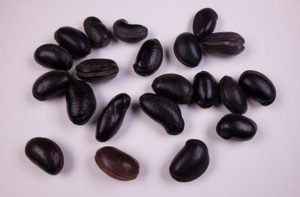
In the tropics of Africa grows the caliber bean, a highly toxic legume. When eaten, it causes damage to the nervous system, muscle spasms, seizures, loss of bladder and bowel control, and loss of respiratory control, resulting in death by suffocation. It follows that these beans are not eaten for sustenance. Instead, the Calabar people used them as a trial by ordeal to prove a person’s guilt or innocence. If someone was accused of a crime but there was not enough evidence to conclude things, such as in the case of accusations of witchcraft or marital affairs, caliber beans would be used to establish a verdict. According to tradition, the accused person would swallow the beans and wait for the result. If the poisonous beans killed them, the person was deemed to have been guilty and their life taken by the gods. If instead poison-induced muscle spasms caused them to vomit the beans before the poison had enough time to take its full deadly effect, they were deemed to have been declared innocent by the gods and pardoned of any crime.

At many times in history, when people are trapped and hungry, they have resorted to cannibalism: a town under siege has no option but to eat its dead in order to survive. Yet there are a few groups for whom cannibalism is the norm. However, even when not taboo, cannibalism is not always safe. Prion diseases are easily transmissible between individuals via cannibalism. These are similar to mad cow disease, and cannot be prevented by thorough cooking. Prion diseases cause the brain to deteriorate by an increasing number of tiny holes, making it appear like a sponge. Mental and physical abilities deteriorate until the victim experiences a painful and confused death. The Fore people of Papua New Guinea suffered in this way until the 1950s. They traditionally dismembered and ate relatives as part of their ritual funerals, viewing a dead person as a food source. A person infected with a prion disease would become increasingly disabled until the disease killed them, and when eaten during their funeral, would pass the disease on to others. It was seen as a curse rather than a disease, and so the Fore people took no steps to prevent infection. In this way the disease spread quickly to epidemic proportions until the local government banned cannibalism.
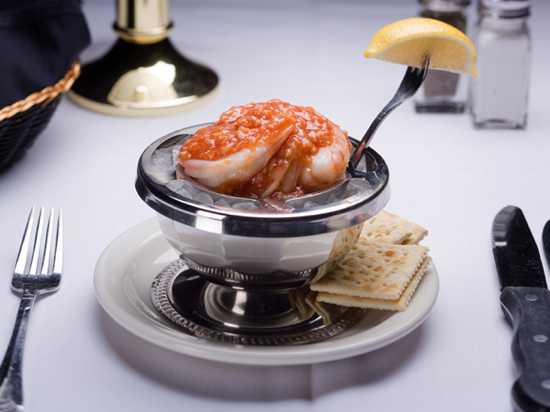
Plants are unable to move about and escape like animals, and they therefore need to be more creative in how they defend themselves. Many evolve the ability to produce, in increasing amounts, chemicals that cause irritation and stinging pain in any herbivores foolish enough to try to consume them. Although this is a powerful deterrent for most animals, there are people who actively seek out foods containing such chemicals. Allyl isothiocyanate, or mustard oil, is five times as lethal as arsenic, mass-for-mass. Although people often build up resistances to small amounts in their food, a small restaurant in Indiana, USA, sells a dish specifically designed to push a person’s tolerance to their limits. The signature dish at St. Elmo Steak House is a prawn cocktail whose spiciness comes from the 9kg of grated mustard oil-containing horseradish used to make it. The sensation of eating this dish is described as akin to being electrocuted.
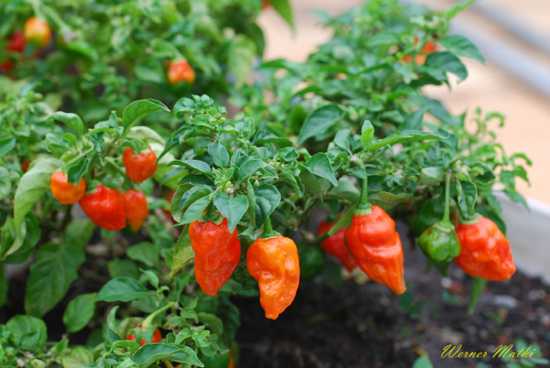
Some plants have taken their self-defense up a notch. These plants, the chillies, use capsaicin, three times more potent than mustard oil. It is the most lethal chemical found in any human food source on earth. Less than 4g of this substance is enough to kill a large adult human. Although few chillies have such an amount, a small number have been cultivated specifically to increase their capsaicin content. Smaller amounts of capsaicin are often eaten by people in a variety of countries, and produce a tingling sensation in the mouth. The Naga Jolokia chilli, on the other hand, is a hybrid created in northern India which contains two hundred times more capsaicin than the hottest commercially available chillies. The amount of capsaicin is enough to disrupt neural processes, resulting in a signal of intense pain and heat being sent to the brain. To smell the air close to one of these chills is said to be like snorting fire, and can result in permanent anosmia. It cannot be touched with bare skin. It is used in India to deter elephants from farming areas simply by touching them on fences. It is important to note that the chillies themselves are not used, rather, anything they touch becomes so unpleasant to animals with good senses of smell that they give it a wide berth. In cooking, Naga Jolokia is seen as a challenge by many people, but even then it is only lightly touched on the food, as to actually include the chilli itself in a dish can result in death. The Indian military is currently planning on weaponizing it.






